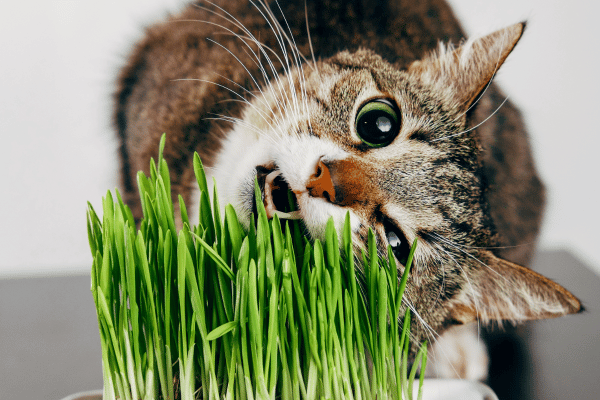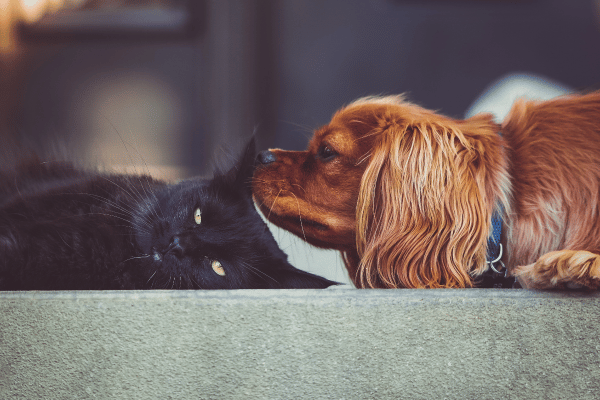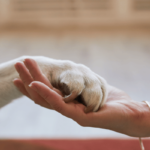Understanding early socialization in pets is crucial for their lifelong behavior. This article will explore how it shapes their interactions with humans and other animals.
Stages and Significance of Pet Socialization

Early socialization in pets, particularly during the first three to fourteen weeks, is pivotal. This period is when they are most receptive to learning and adapting. Introducing them to various stimuli, like different people, pets, and environments, can significantly shape their behavior. Consistent and positive experiences during this stage help in developing a well-adjusted pet. This process lays the foundation for their future interactions and can prevent behavioral problems.
Neglecting early socialization can lead to numerous behavioral issues. Pets might develop fear, anxiety, or aggression towards unfamiliar situations or beings. For instance, a dog not exposed to various environments or people might react fearfully or aggressively when encountering them later in life. Similarly, kittens deprived of human interaction during early stages may become excessively shy or display aggression. It’s thus crucial to emphasize socialization from the beginning.
The methods of early socialization are diverse and should be positive. Introducing pets to new environments, sounds, and people in a controlled manner is beneficial. It’s essential to ensure these experiences are not overwhelming but rather gradual and reassuring. Regular and gentle interactions with different people and animals, along with varied physical environments, contribute to a well-rounded development. Remember, the goal is to foster positive associations, helping pets grow into confident and sociable adults.
Socialization’s Role in Preventing Behavioral Issues
Socialization’s role in a pet’s life extends beyond mere exposure to new experiences. It’s about creating a foundation of trust and understanding between pets and their environment. By introducing pets to a variety of scenarios in a positive manner, they learn to navigate the world with confidence. This early learning helps mitigate potential behavioral issues such as excessive barking in dogs or scratching in cats, which often stem from fear or anxiety.
A well-socialized pet typically displays better adaptability and a more even temperament. Regular interactions with different people and other animals help pets understand and respect boundaries. It also aids in developing their communication skills, making them less prone to misunderstandings and conflicts. For example, dogs that frequently interact with other dogs learn to interpret and respond to social cues more effectively, reducing the risk of aggressive encounters.
The benefits of early socialization extend to pet owners as well. It leads to a more harmonious relationship and a stronger bond. Owners of well-socialized pets often report higher levels of satisfaction and lower levels of stress associated with pet ownership. Additionally, socialized pets are generally more amenable to training, making them easier to manage and integrate into various aspects of family life, including travel, social gatherings, and cohabitation with other pets.
Early Socialization in Pets Enhances Family Life
Early socialization in pets significantly enhances family life. When pets are accustomed to various situations and people, they become more relaxed and less disruptive at home. This harmonious environment benefits not just the pets but the entire family. For instance, a cat familiar with the routine handling from an early age is less likely to scratch or bite during grooming. Similarly, dogs accustomed to visitors and children are less likely to exhibit aggressive behaviors.
The impact of early socialization is also evident in pets’ health. Socialized pets, experiencing less stress and anxiety, tend to have fewer health issues related to stress, such as digestive problems or skin conditions. This proactive approach to their well-being leads to fewer vet visits and a more contented life. It also makes routine vet checks and treatments much easier, as pets are more cooperative and less fearful of the unfamiliar setting.
Moreover, early socialization in pets fosters a deeper bond between pets and their owners. Pets that are well-socialized are more likely to engage positively with their owners, leading to more interactive and fulfilling relationships. Activities like walking, playing, and training become more enjoyable and less stressful. This strengthens the emotional connection and trust, making pets not just animals in the house but cherished members of the family.
Creating Positive Experiences in Early Pet Socialization
Creating positive experiences during early socialization is key to a pet’s well-being. Introducing pets to new people, animals, and environments in a supportive manner encourages positive associations. This can be achieved through regular walks in different settings, playdates with other pets, and gentle handling by various people. Such experiences help pets learn that the world is a safe place, reducing their likelihood of developing fear-based behaviors.
Consistency is crucial in early socialization. Pets thrive on routine and predictability. Establishing a regular schedule for socialization activities helps them feel secure. This includes consistent feeding times, walks, and play sessions. A predictable environment allows pets to explore new experiences within a safe framework. For instance, regular visits to a dog park can help dogs learn how to interact appropriately with their peers, fostering better social skills.
The role of the pet owner in early socialization is significant. Owners must be patient, observant, and responsive to their pet’s needs. Understanding and responding to a pet’s body language during socialization can prevent negative experiences. For example, if a dog shows signs of stress in a new environment, it’s important to retreat and try a more gradual introduction next time. This attentive approach ensures a positive and beneficial socialization process.
Overcoming Challenges in Pet Socialization Process
Overcoming challenges in the pet socialization process is essential for a well-balanced pet. Some pets may naturally be shy or fearful, requiring more patience and gentle encouragement. Gradually introducing them to new experiences in a non-threatening manner can help. Positive reinforcement, such as treats and praise, when they display curiosity or calmness, can be effective. It’s important to recognize each pet’s individual pace and comfort level, adapting the socialization process accordingly.
Unexpected setbacks in socialization are not uncommon. Pets might react differently to certain stimuli, showing signs of stress or fear. In these cases, it’s crucial to step back and reassess the approach. Maybe the pet needs more time to adjust or a different environment. Consulting with a professional, like a veterinarian or animal behaviorist, can provide valuable insights and strategies. They can offer tailored advice to address specific challenges your pet faces.
Lastly, celebrating small victories is important in the socialization journey. Recognizing and rewarding your pet’s progress, no matter how small, reinforces positive behavior. This could be as simple as calmly interacting with a new person or successfully navigating a new environment. Acknowledging these achievements not only boosts your pet’s confidence but also strengthens the bond between you and your pet. Consistent encouragement and support play a significant role in successful pet socialization.
Balancing Variety and Safety in Socialization Efforts
Balancing variety and safety in socialization efforts is crucial. Introducing pets to diverse experiences should be done cautiously to avoid overwhelming them. This includes varying the types of people, animals, and environments they encounter, while ensuring each experience is positive. For example, exposing a puppy to children, adults, and other dogs in a safe, controlled setting teaches them to be comfortable around different beings without feeling threatened.
Understanding a pet’s individual limits is key. Not all pets respond the same way to socialization. Some may adapt quickly, while others need more time and patience. Observing their reactions and adjusting the pace of new experiences accordingly is important. If a pet seems stressed or fearful, it’s better to slow down and offer them reassurance. Gradual exposure, combined with positive reinforcement, can lead to successful socialization without causing undue stress.
Involving the entire family in the socialization process can be beneficial. This allows pets to understand their place within the family unit and adapt to various interactions. Each family member can participate in different aspects of the pet’s socialization, such as playtime, walks, and feeding. This not only helps the pet become well-rounded but also fosters a sense of belonging and acceptance, integral to their overall well-being and behavior.
Socialization’s Impact on Long-term Pet Behavior

The impact of early socialization on long-term pet behavior is profound. Properly socialized pets tend to exhibit fewer behavioral problems in adulthood. They are generally more relaxed, less reactive to stress, and adapt better to changes in their environment. For instance, dogs socialized with different types of people and other animals are less likely to develop fear-based aggression or anxiety, leading to a more peaceful coexistence with their human families.
Consistency in early socialization also promotes better health in pets. Stress and anxiety, often resulting from poor socialization, can lead to various health issues, including digestive disorders and skin problems. Regular positive social interactions contribute to a pet’s overall well-being, reducing the likelihood of stress-induced ailments. Pets that are at ease in diverse environments also tend to handle veterinary visits and grooming sessions with less anxiety, making these necessary experiences less traumatic.
Lastly, early socialization supports lifelong learning and adaptability in pets. Pets that have been exposed to various experiences from a young age are generally more receptive to training and adapting to new situations. This flexibility is particularly beneficial as they age, encountering different life stages and situations. Owners of well-socialized pets often find it easier to introduce new routines, pets, or family members, contributing to a harmonious household dynamic.
Early Socialization in Pets Fosters Lifelong Harmony
Early socialization in pets fosters lifelong harmony, not just within their own lives, but also in the lives of their human companions. Socialized pets are more likely to interact harmoniously with other animals and humans, reducing incidents of aggression and fear-based responses. This creates a peaceful and enjoyable living environment. For example, dogs that are used to being around children from a young age are less likely to react negatively in their presence later on.
Integrating socialization into daily routines can be highly effective. Regular walks in different neighborhoods, visits to pet-friendly stores, and interactions with other pets and people can be seamlessly incorporated into a pet’s life. This regular exposure in a variety of settings helps pets to normalize diverse experiences. Such routine integration of socialization practices ensures that pets are well-adjusted and comfortable in a range of situations, enhancing their quality of life.
The benefits of early socialization in pets extend to the community. Socialized pets are less likely to cause disturbances, such as excessive barking or aggressive behavior, making them better community members. This aspect is particularly important in urban settings, where pets frequently interact with neighbors and other animals. By ensuring pets are well-socialized, owners contribute to a more harmonious community environment, fostering positive relationships between pets, their owners, and the broader community.
Enhancing Pet Well-being through Early Socialization
Enhancing pet well-being through early socialization is a vital aspect of pet care. Socialized pets are generally happier and more content, displaying fewer signs of stress and anxiety. This well-being is evident in their behavior; they are more likely to be relaxed and playful, showing less destructive behavior like chewing or scratching inappropriately. For example, cats that are used to being handled gently from a young age are less prone to stress-related behaviors.
Socialization also helps in identifying and addressing any behavioral issues early. By exposing pets to various situations, owners can observe their reactions and address any concerns promptly. Early intervention is key to preventing minor issues from developing into more significant problems. For example, a dog showing mild signs of aggression towards strangers can be trained and socialized more intensively to mitigate this behavior before it becomes ingrained.
Moreover, socialization plays a role in the overall development of a pet’s personality. Pets with diverse experiences tend to be more adaptable and intelligent, showing greater problem-solving abilities. Activities like interactive play, exposure to different environments, and social interactions with other animals contribute to their cognitive development. This not only makes pets more engaging companions but also ensures they are mentally stimulated and less likely to develop boredom-related issues.
Building a Foundation for Positive Pet Interactions
Building a foundation for positive pet interactions through early socialization is key. This involves gradually introducing pets to a variety of people, animals, and environments in a positive and controlled manner. Such a foundation ensures that pets develop healthy coping mechanisms for new experiences. For instance, a dog that has been positively exposed to different sounds and sights is less likely to react fearfully to similar stimuli in the future.
This foundational approach also aids in preventing future behavioral issues. Pets that have been well-socialized are less likely to develop problematic behaviors like excessive barking, aggression, or separation anxiety. This is because they learn to associate new experiences with positive outcomes from an early age. Owners play a crucial role in this process by providing consistent and positive experiences, reinforcing good behavior, and gently correcting undesirable responses.
Furthermore, early socialization helps in building a pet’s confidence and trust. Confident pets are more likely to engage in positive interactions with both humans and other animals. They tend to be more relaxed in various situations, from vet visits to encountering strangers. This confidence not only makes day-to-day activities smoother but also enhances the overall quality of life for both the pet and the owner, fostering a deeper and more meaningful bond.
The Lifelong Benefits of Early Socialization in Pets
Early socialization in pets is not just a practice; it’s an investment in their future and ours. It shapes a pet’s personality, influences their behavior, and sets the stage for a fulfilling life. Pets that have been properly socialized tend to be more adaptable, confident, and less prone to behavioral problems. This not only makes for a happier pet but also eases the responsibilities of pet ownership, creating a more harmonious home environment.
The positive impact of early socialization extends beyond the home. Socialized pets contribute to a more peaceful community, as they are less likely to exhibit aggressive or fearful behaviors in public settings. This benefits not just the pet and their owner, but the entire community. By prioritizing early socialization, we foster a culture of responsible pet ownership and understanding, promoting a safer and more welcoming environment for all.
In conclusion, early socialization in pets is a crucial step towards ensuring a well-behaved, well-adjusted, and happy companion. We encourage pet owners to embrace this journey, using resources like the Correio Braziliense, Blog da Cobasi, and Apppegada for guidance and support. Share your experiences and successes in pet socialization with us in the comments or on our social media pages. Let’s raise happy, healthy pets together!
I. Frequently Asked Questions About Dog and Cat Behavior
- What is the cat training method for dogs?The cat training method for dogs involves using positive reinforcement and rewards to encourage desired behaviors, similar to how one might train a cat, focusing on patience and understanding the dog's cues.
- Can dogs and cats be trained the same way?While some training principles like positive reinforcement apply to both, dogs and cats have different motivations and learning styles, necessitating tailored approaches for each.
- How are cats and dogs related?Cats and dogs are both mammals but belong to different families; cats to Felidae and dogs to Canidae. They share a predatory ancestry and have been domesticated by humans for different roles and companionships.
- How would you describe a dog and cat?Dogs are often described as loyal, social, and eager to please, thriving on companionship and activity. Cats are typically seen as independent, agile, and curious, valuing their personal space and engaging on their terms.
- How do cats and dogs live together?Cats and dogs can live together harmoniously with proper introduction, understanding of each other's body language, and respect for their individual needs and spaces.
- Why are cat and dog connected?Cats and dogs are connected in popular culture as common household pets, often depicted together to highlight their contrasting behaviors and relationships with humans.
- How long does it take a cat to get used to a dog?The time it takes for a cat to get used to a dog can vary widely, from a few days to several weeks, depending on the cat's personality, past experiences, and the dog's behavior.
- Can you get a dog and cat to live together?Yes, with careful introductions, understanding of their individual needs, and ongoing supervision, a dog and cat can live together peacefully.
- Is it okay to have a cat and a dog at the same time?Having a cat and a dog at the same time is okay and can be enriching for both pets and their owners, provided their individual needs are met and they are properly introduced.
- Can you keep dogs with cats?Yes, dogs and cats can coexist in the same household with proper management, training, and socialization to ensure they respect each other's boundaries.

Join Dan Morgan at dwfocus.com, your hub for ‘4 paws and owners’ wisdom! Explore a world where pet care meets expert insights, crafted by Dan, a seasoned vet with a heart for animals. Engage with stories, tips, and advice that every pet owner needs. From playful pups to graceful cats, Dan Morgan guides you through the joys and challenges of pet parenting. Embrace your love for pets with Dan’s expert guidance on dwfocus.com. #4PawsAndOwners #DanMorganPetExpert #dwfocus







